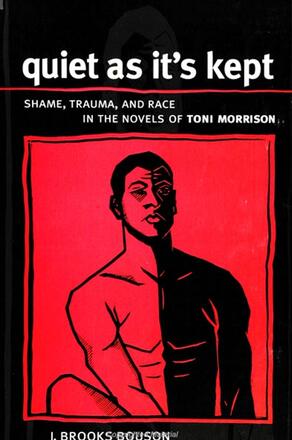
Quiet As It's Kept
Shame, Trauma, and Race in the Novels of Toni Morrison
Alternative formats available from:
Focuses on the role of shame and trauma as it looks at issues of race, class, color, and caste in the novels of Toni Morrison.
Description
Quiet As It's Kept draws on and extends recent psychoanalytic and psychiatric work of shame and trauma theorists to offer an in-depth analysis of Toni Morrison's representation of painful and shameful race matters in her fiction. Providing a frank and sustained look at the troubling, if not distressing, aspects of Morrison's fiction that other critics have studiously avoided or minimized in their commentaries, this book challenges established views of Morrison, showing her to be an author who forces readers into uncomfortable confrontations with matters of race. In Quiet As It's Kept, J. Brooks Bouson explores these issues in Morrison's works The Bluest Eye, Sula, Song of Solomon, Tar Baby, Beloved, Jazz, and Paradise.
Morrison, Nobel prize-winning author, has viewed part of her cultural and literary task as a writer to bear witness to the plight of black Americans. "Quiet as it's kept, much of our business, our existence here, has been grotesque. It really has," she has commented. As she exposes to public view sensitive race matters in her fiction, Morrison presents jarring depictions of the trauma of slavery and the horrors of racist oppression and black-on-black violence.
J. Brooks Bouson is Associate Professor of English at Loyola University in Chicago. She is the author of The Empathic Reader: A Study of the Narcissistic Character and the Drama of the Self and Brutal Choreographies: Oppositional Strategies and Narrative Design in the Novels of Margaret Atwood.
Reviews
"I like the insightful and unforced way in which the concepts of shame and trauma are applied to the texts. The book is extremely well researched and informative, both in the discussion of shame and trauma and in the discussion of race matters and the secondary criticism on Morrison's work. Both literary scholars and psychologists should find it of great interest. " — Joseph Adamson, coeditor of Scenes of Shame: Psychoanalysis, Shame, and Writing
"This book is marked by its lucidity; its command of the psychological theories of shame and trauma; its careful, informed readings of Morrison's texts; and its generally persuasive argument about the importance of shame and trauma to an understanding of Morrison's work. " — Barbara Schapiro, author of Literature and the Relational Self